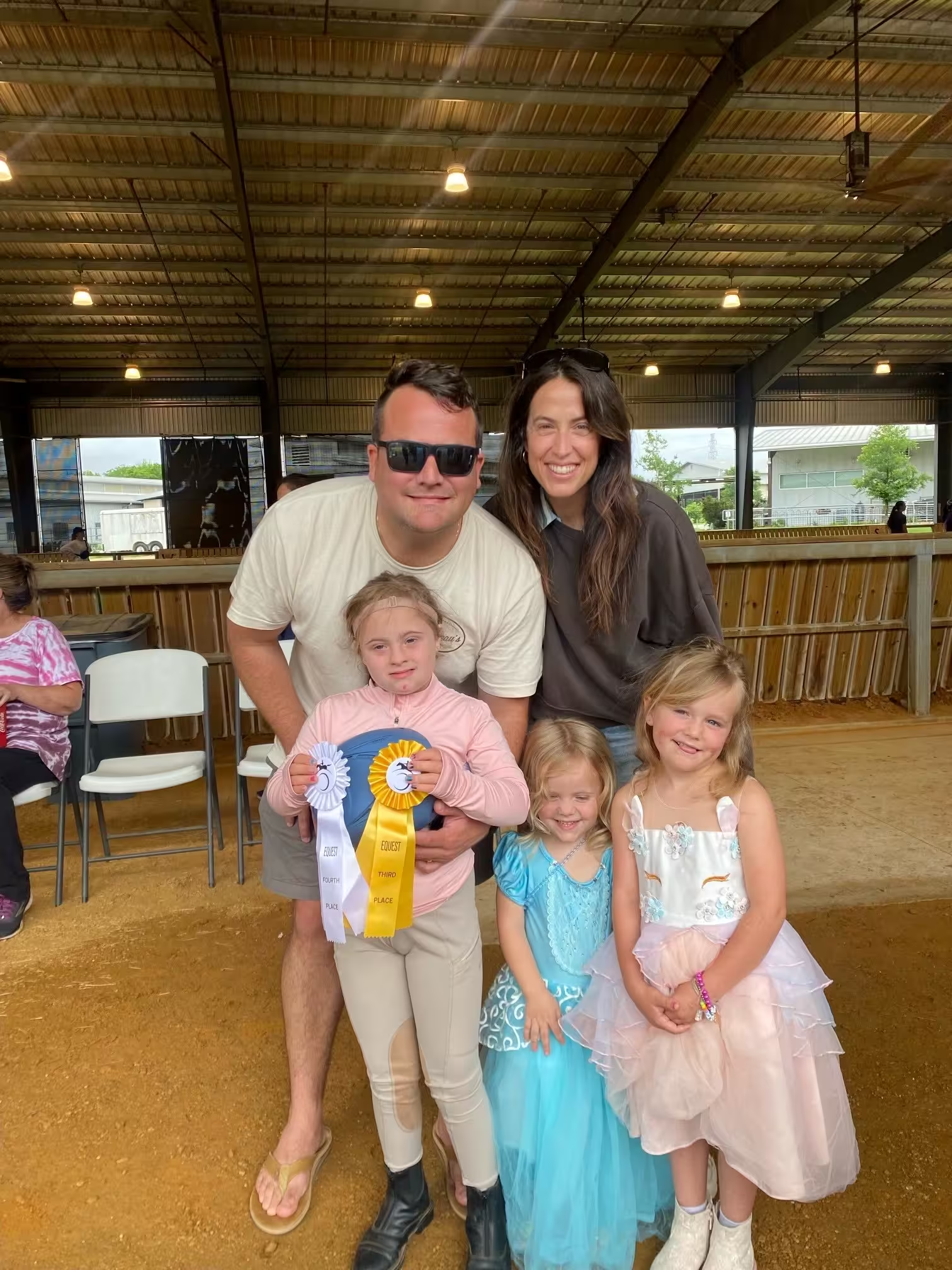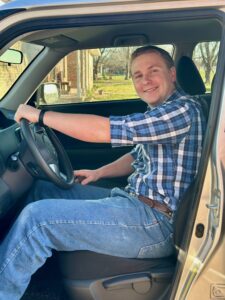Last updated on April 4, 2025
In a world where inclusivity and understanding are critical, the story of Annabelle Steigner and her family’s journey from Nebraska to Texas highlights the challenges and triumphs of navigating new environments with Down syndrome. A vibrant third grader, Annabelle has faced numerous hurdles since her family’s relocation yet found an empowering solution through equine-assisted therapy at Equest.
The Challenge of Change
For Annabelle, who was born with Down syndrome, change was difficult. After spending the first five years of her life in Nebraska, surrounded by a strong support system of therapy services, an inclusive preschool, and a tight-knit church community, the move to Texas presented significant challenges. Like many military families, Annabelle’s parents knew a move was inevitable, but the transition proved especially tough on her. Annabelle, whose world thrives on relationships, had to leave behind everything familiar—her friends, her school, and her routines. Her reaction was typical of someone in her situation: stubbornness, defiance, and emotional struggles. It wasn’t just a change in location; it was a complete upheaval of her daily life.
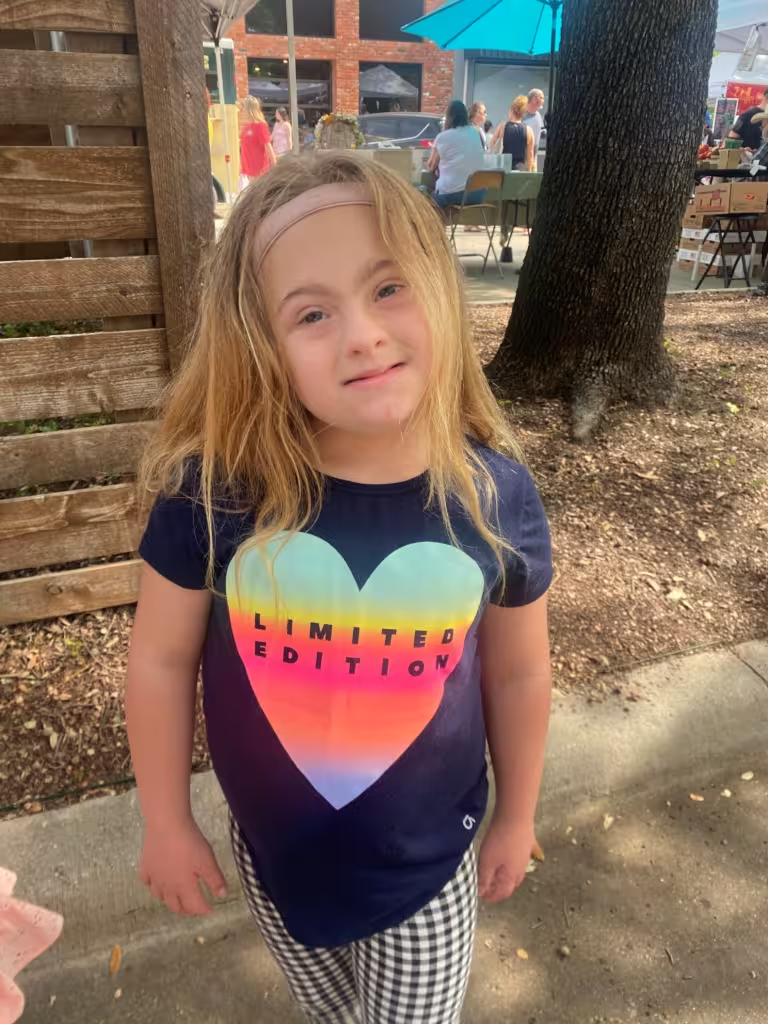
A limited edition and full of heart, Annabelle is a gift, a reminder of the beauty in being unique.
Navigating the Public School System
Annabelle’s experience in the Texas public school system was another hurdle for her and her family. Initially, the Rockwall Independent School District did not have a robust inclusion model for children with Down syndrome. Special needs students were largely serviced in ACE classrooms, and the concept of integrating them into mainstream education was underdeveloped. This lack of inclusion meant Annabelle’s educational environment wasn’t fostering her potential.
Brittany, Annabelle’s mother, had to advocate tirelessly for inclusion, ensuring that her daughter had the opportunity to learn alongside her peers. While this advocacy was met with resistance at first, progress eventually came. By the time Annabelle entered first grade, she had caring teachers and a supportive community. But this progress wasn’t linear. In subsequent years, the battle for inclusion continued, and the family had to remain vigilant in ensuring Annabelle received the education she deserved.
By third grade, however, significant improvements had been made, particularly with the help of resource teachers who created modified curriculums. Annabelle’s behavior improved, and the collaborative efforts between general education and special needs teachers created a thriving learning environment. It was a hard-fought victory for Annabelle and her family, but one that reflected the importance of persistence and advocacy in the face of systemic challenges.
Discovering Equest and the Power of Equine Therapy
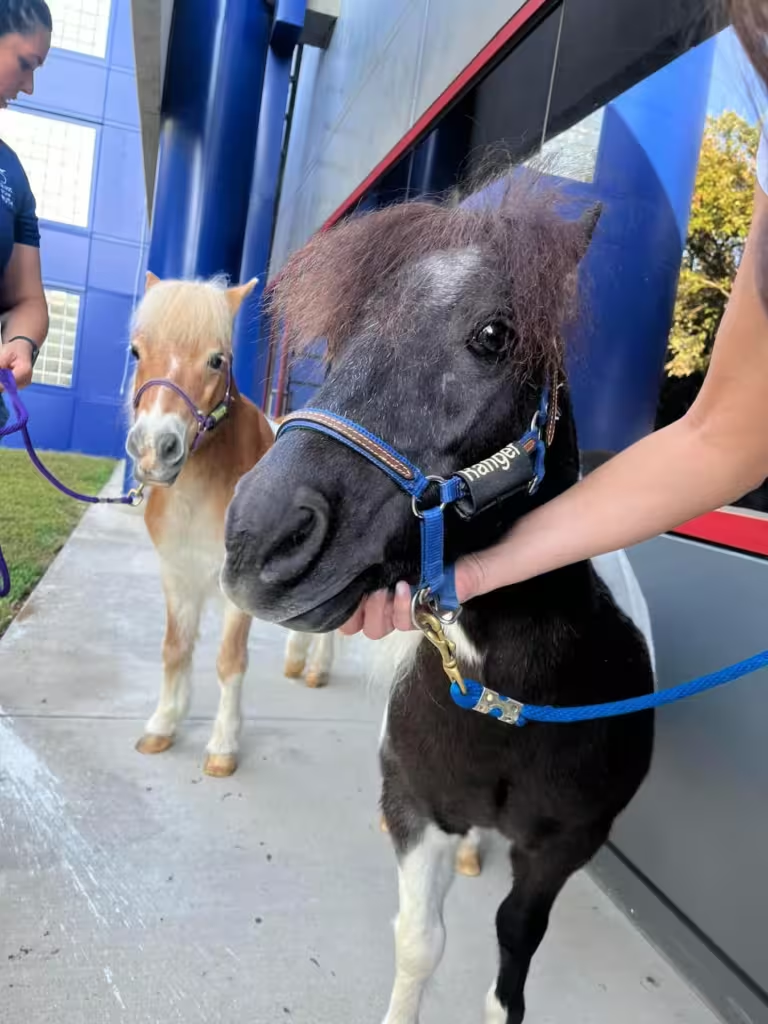
Two miniature horses serve as ambassadors to Equest, a therapeutic riding center in Southern Dallas.
It was during these challenging times that Annabelle’s family discovered Equest, a Dallas-based equine therapy program that would become a transformative part of Annabelle’s life. Introduced to the program by her father’s colleague, Annabelle enrolled in Equest through their military grant program. While her parents were initially uncertain about how Annabelle would respond to the horses, they were soon amazed at the connection that formed.
For Annabelle, equine therapy became more than just a therapeutic outlet—it became her passion. Riding horses gave her a sense of independence and confidence that translated into other areas of her life. Where other forms of therapy might have felt like a chore, riding was something Annabelle looked forward to. Her sister joined her in riding, and the two bonded over the shared experience. Annabelle was no longer just receiving therapy; she was participating in something that made her feel proud and accomplished.
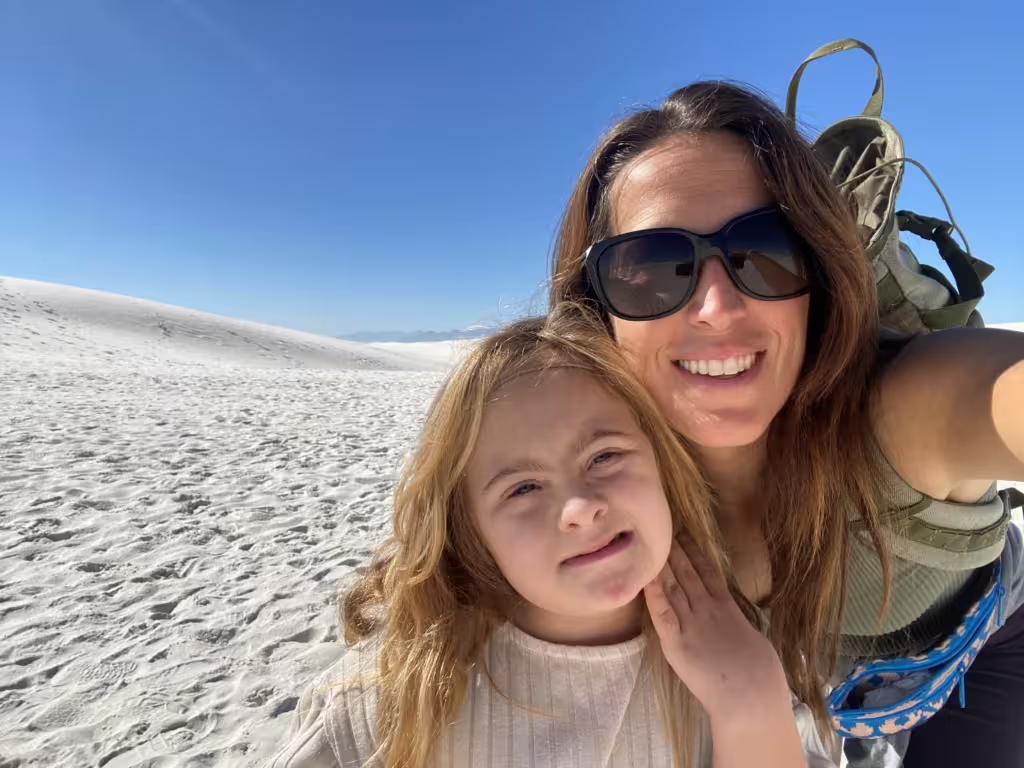
The Impact of Equest on Annabelle’s Growth
Equest provided a unique environment where Annabelle could thrive. The program’s approach to working with children with Down syndrome was one of inclusion, dignity, and patience. From the very first therapy session, Brittany felt a sense of relief. The team at Equest didn’t just see Annabelle as a child with Down syndrome; they saw her as a capable individual with strengths to be celebrated. Whether it was taking a bit longer to walk to the stables or needing extra time to communicate, Annabelle was treated with respect and understanding.
The impact on Annabelle’s physical and emotional development has been profound. Her confidence has soared, and her improved independence has been a testament to the power of the program. Annabelle’s achievements have also extended beyond the therapy arena—she has won ribbons at horse shows, proudly taking them to school to show her friends. Each ribbon represents not just a victory in competition, but a victory over the challenges she faces every day.
A Safe Haven for Families
For Brittany, Equest has provided more than just a therapeutic outlet for her daughter—it has been a place of support for the entire family. As a parent of a child with special needs, Brittany often had to fight for her daughter’s rights and accommodations in school. But at Equest, there was no need to advocate. The team already knew what to do, providing a sense of peace and relief. Brittany recalls watching other parents, worn out from the day, arriving at Equest only to have volunteers meet them at their cars to help. It’s these small, yet significant gestures that make Equest a haven for families like the Steigners.
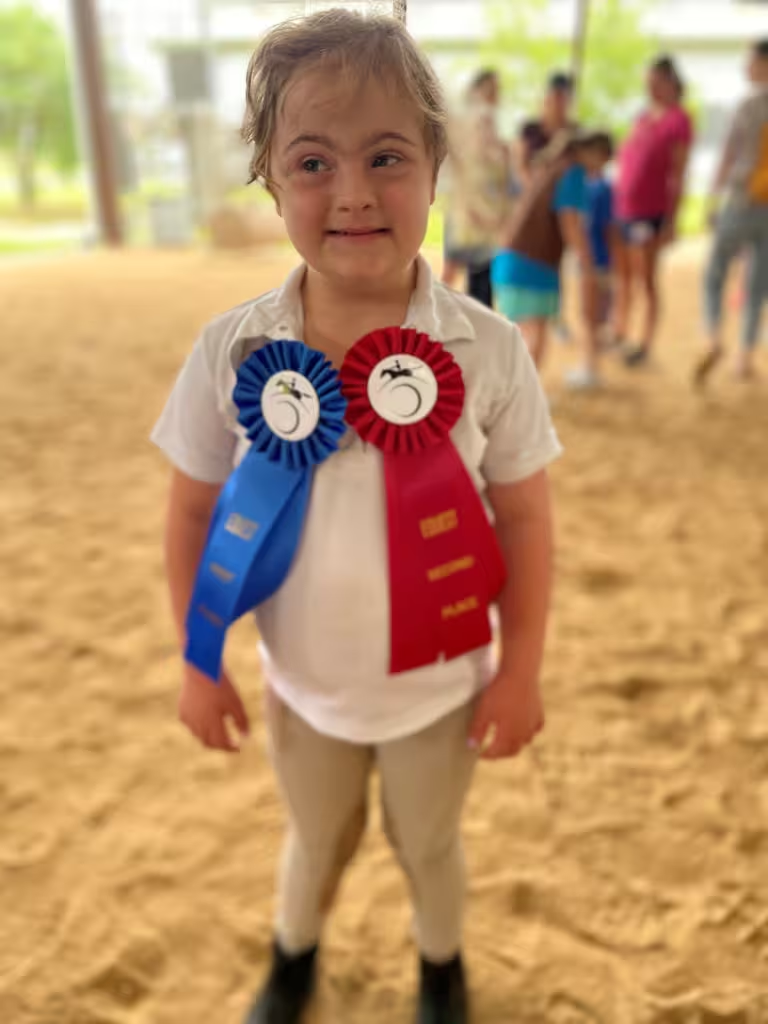
Looking to the Future
As a military family, the Steigners will move again soon. But wherever they go, they plan to continue Annabelle’s equine therapy journey. Beyond riding, Annabelle is also involved in swimming, gymnastics, and basketball, and her family hopes she will continue these activities as she grows. The lessons learned from Equest—the confidence, independence, and sense of belonging—will undoubtedly continue to shape Annabelle’s future.
Advice for Other Families
For families facing similar challenges, Brittany offers a piece of advice: your child is worthy of inclusion. While advocating for inclusion in traditional settings is important, finding a supportive community, like the one at Equest, can also provide a much-needed reprieve. These environments, where children with special needs are understood and celebrated, can offer both therapeutic benefits and emotional support for the entire family.
How the Community Can Help
The journey for families like the Steigners doesn’t happen in isolation. It takes a village to create inclusive spaces where children of all abilities can thrive. For communities like Rockwall, understanding the importance of inclusion in schools, activities, and therapeutic programs is crucial. Creating these environments is not a burden but a gift—one that benefits both typical and special needs children alike.
Programs like Equest offer a shining example of what’s possible when a community comes together to support individuals like Annabelle. To learn more about Equest’s life-changing programs, visit their website at www.equest.org or call (972) 412 – 1099.
In the end, Annabelle’s story is one of resilience, love, and the transformative power of inclusion. Through her journey, she has shown that with the right support, the possibilities are endless.

